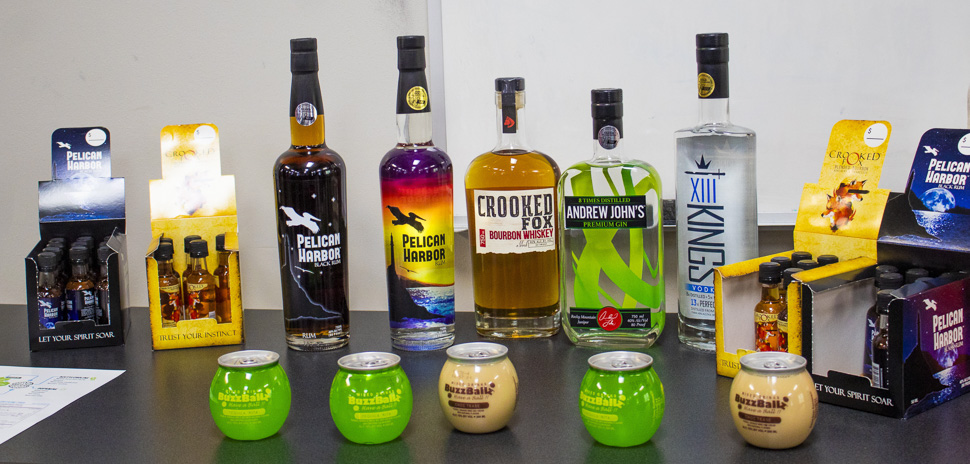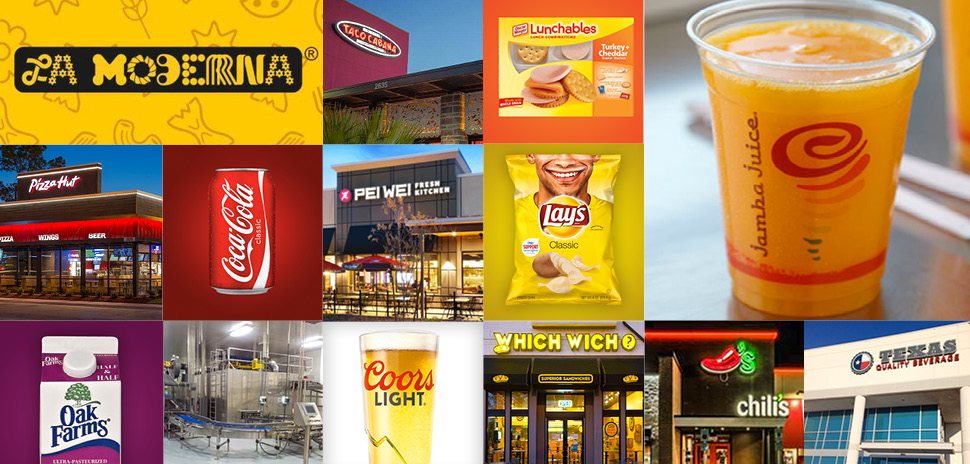North Texas entrepreneurs have found success in the consumer packaged goods sector developing everything from premixed cocktail drinks to smart light bulb solutions.
Entering this hyper-competitive industry can be like navigating a minefield with so many unknowns like when should companies scale, seek outside investment, or go national with shelf space in Walmart? Any missteps along the way could be disastrous, even for multimillion-dollar corporations.
“As much as you’re trying to go from 0 to 60 as fast as possible, really take the time upfront to do your homework.”
Issy Perez
Several successful CPG entrepreneurs told their war stories Thursday at the Dallas Consumer Product Innovations Day at the Addison TreeHouse, hosted by the cities of Addison, Farmers Branch, and Carrollton as well as private equity firm NPower Ventures and startup funding facilitator TEN Capital Group. Other companies, many of which have received funding from Mark Cuban through ABC’s Shark Tank, got to pitch their ideas to the experts and the audience.
While Amazon has affected traditional brick and mortar retail in a negative way, the online retail giant has actually made it easier for entrepreneurs to get their product into the retail market.
“It’s really leveled the playing field because you don’t have to have all those large company assets,” said Issy Perez, former president of Britvic North America. “The barriers of entry used to be so high for you to be able to compete. Now, you can create your own brand and most companies are creating their own brand, but not on TV.”
READ NEXT
Site Selection Ranks DFW No. 1 Most Competitive in Food & Beverage
The impact of the more than 15,000 food and beverage businesses in DFW is substantial, accounting for roughly 370,000 local jobs. And, DFW remains a center of invention in one of the most competitive sectors in the nation.
He advised entrepreneurs to not lose sight of their passion and why they created their product in the first place. He suggested to take time building their brand on social media, too.
“As much as you’re trying to go from 0 to 60 as fast as possible, really take the time upfront to do your homework,” Perez said.
Merrilee Kick had a wacky idea of creating premade cocktail drinks with fun names in the shape of plastic balls. She called them BuzzBallz. She was raising children, working as a teacher, and finishing her master’s degree — with BuzzBallz as her thesis — when she started the company.
“Being employee No. 1 wasn’t easy because we made no money,” she said, remembering what it was like when she started. “It’s a cyclical thing. You’re chasing your tail all the time.”
When her product finally landed on Walmart shelves, the company grew by $6 million in one year. But all that disappeared when the retail giant rearranged its stores and BuzzBallz got the boot.
“That was a lesson learned,” she said. “I did not want to be a brand that went up or down when a major buyer changed their mind.”
Once Southern Glazer’s Wine & Spirits of America started selling the product in Dallas, Kick’s company started growing fast again. BuzzBallz are sold in 44 states, seven countries, and has grown 25 percent the past two years.
“I did not want to be a brand that went up or down when a major buyer changed their mind.”
Merrilee Kick
The company has expanded its offerings to include energy drinks and carbonated beverages.
“We want to be a household name,” she said.
Finding a good distributor was key, but Kick cautions that startups should leave themselves a way out and make sure the cancellation fee isn’t too high.
“Make sure you can get out of it so you aren’t indebted and stuck with them forever,” she said.
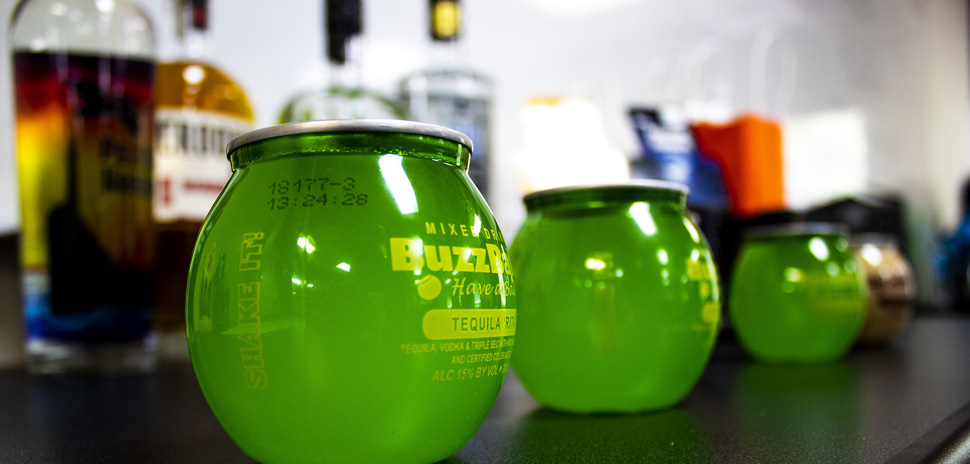
[Photo: Yvena Chowdhury]
Trish Wesevich founded the Capital Kitchens in Austin to give foodies and food-oriented entrepreneurs a commercial kitchen they could rent by the hour to test their CPG product.
“I think there’s value in coming in and doing everything yourself and working in a hot kitchen space that can be crowded with other users,” Wesevich said. “You don’t have to come in and reinvent the wheel. You’re supported by myself and other colleagues that I have and you can inch your way into the industry.”
She’s also developed partnerships with smaller grocery stores in the Austin area who will give new products a chance.
Wesevich added that one company that came through Capital Kitchen is filming an episode of Shark Tank this summer.
If a startup strikes a deal with Cuban on Shark Tank, the entrepreneur will be working with Abe Minkara, the managing director for Mark Cuban Companies.
Nick Mysore of NPower Ventures, who moderated a discussion at the Thursday event, asked Minkara why he thinks Cuban is so critical to Shark Tank’s success.
“The show at its core, I think, is a great formula. I think every shark contributes in their own way,” Minkara said. “The success of the show is being well balanced. I think Mark fills a very important position there. Mark is a very strategic investor. He’s the only billionaire in the lineup. He’s also the tech guru in the group. Mark has also learned a lot about the consumer packaged good space.”
The show is a platform for entrepreneurs to connect with investors and Minkara said he hopes it inspires the next generation.
“It’s creating the awareness and educating wanna-be and young entrepreneurs for what it takes to become a founder of a company and what it takes to actually pitch your idea in front of aggressive investors, which is why they call them sharks,” Minkara said.
The conference kept that Shark Tank theme going by having some CPG startups pitch their ideas to a panel of experts for feedback.
Here are some highlights:
Ilumi
Swapnil Bora explained how Ilumi started with a smart light bulb concept, but along the way patented Bluetooth Mesh technology that allowed it to move into the much larger business-to-business space.
The Plano-based company is selling its Internet of Things technology to manufacturers while also developing software that can provide back-end data to customers.
In 2014, the company received a $350,000 investment from Cuban on Shark Tank. Now, the company is raising $2.4 million.
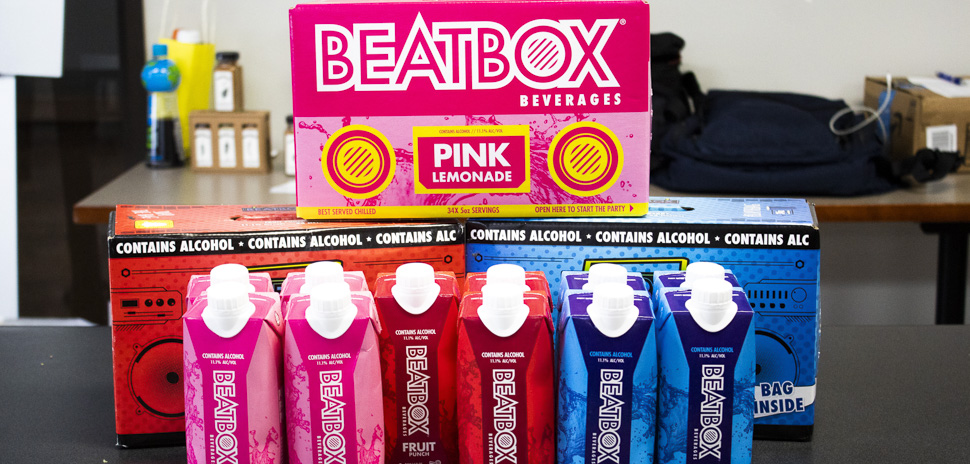
[Photo: Yvena Chowdhury]
BeatBox Beverages
Justin Fenchel and his team presented a portable party punch drink that comes in three flavors and has 11 percent alcohol by volume. The low-calorie, gluten-free drink sets itself apart by coming in a slick cardboard box that’s easily recyclable and environmentally friendly.
BeatBox received a $1 million investment from Cuban on Shark Tank. The company is building its brand by partnering with social media influencers, hip-hop artists, and music festivals.
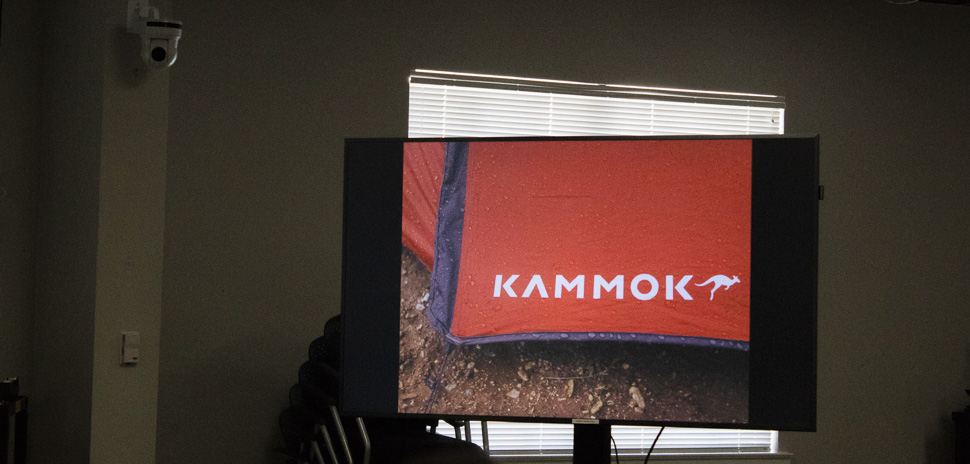
[Photo: Yvena Chowdhury]
Kammok
Austin-based Kammok combines the comfort of a hammock with the love of camping and the outdoors. CEO Haley Robison showed off the latest gear for hammock camping that’s comfortable and safe for the environment. The nanoweave straps are designed so they don’t cause damage to trees.
The 6-year-old company sold $4 million worth this year, with the majority of the sales coming from its own website and through a Kickstarter campaign. Kammok also is sold in REI and other retail partners.
The company is in the middle of a $3 million raise.
PHOTO GALLERY
Photos by Yvena Chowdhury.
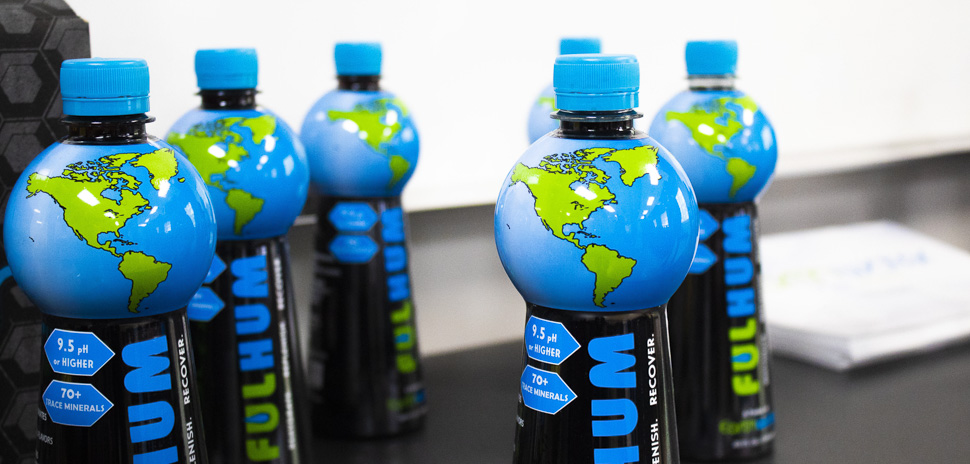
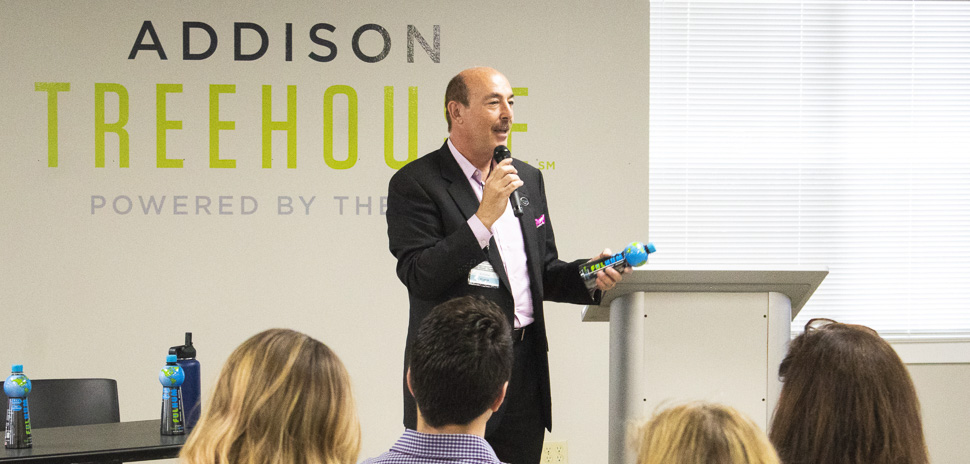
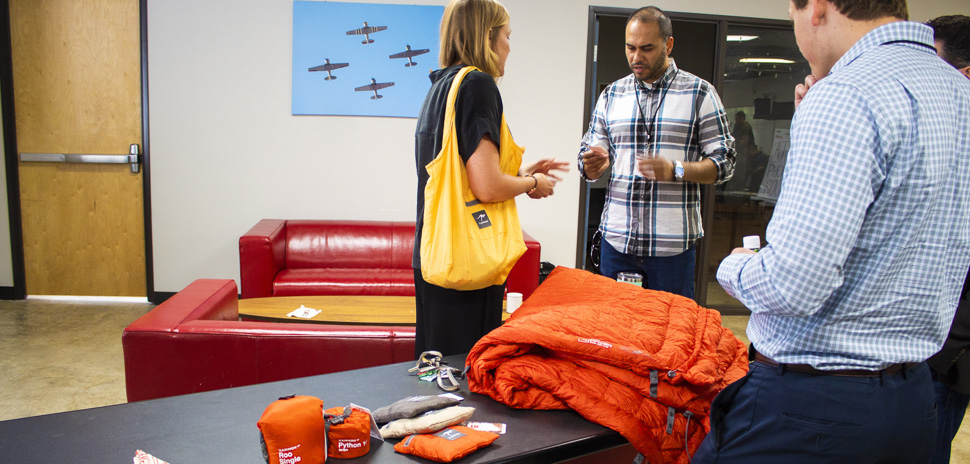
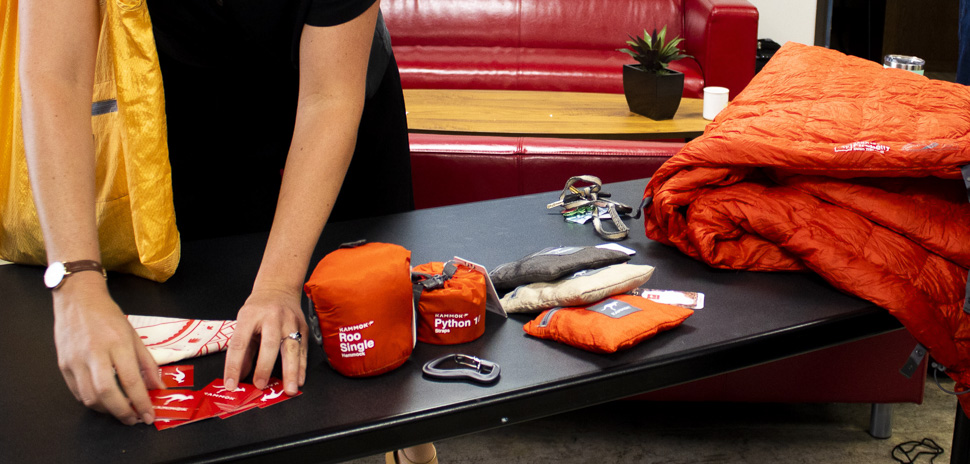
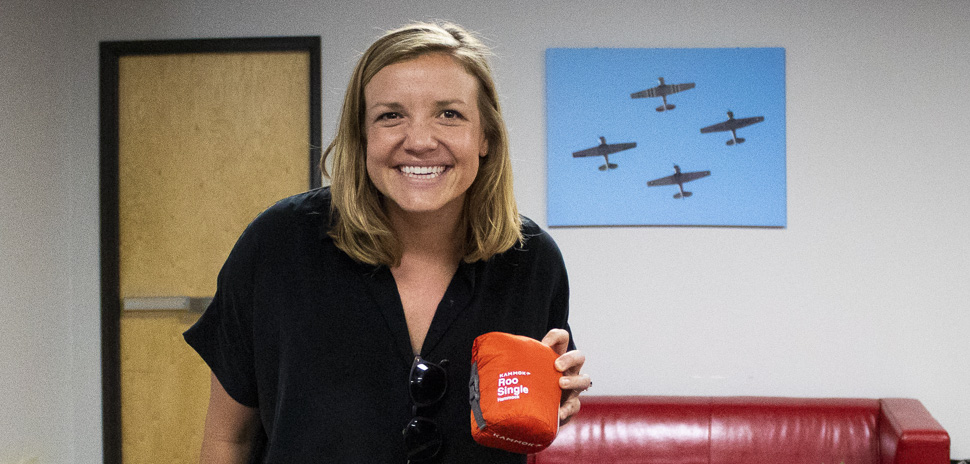
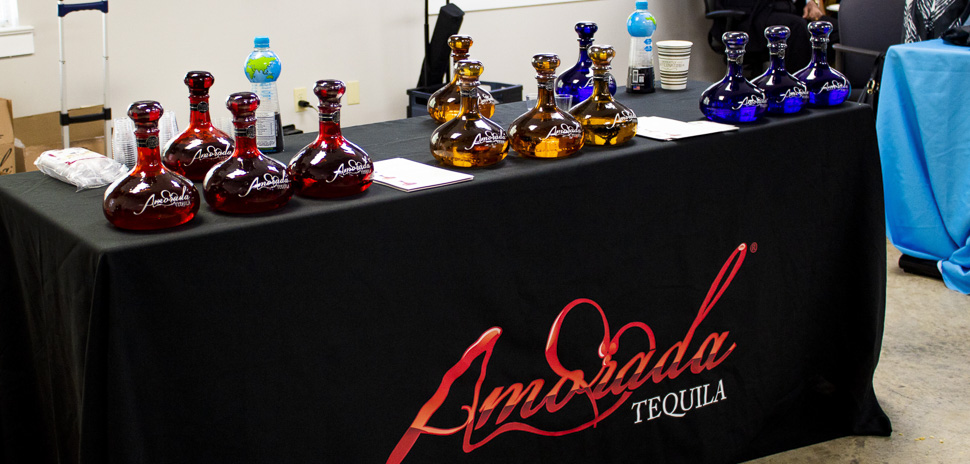
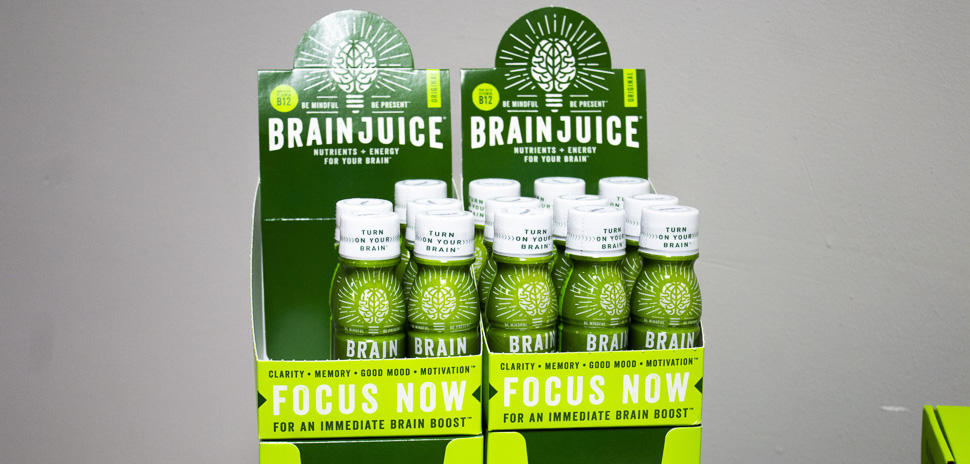
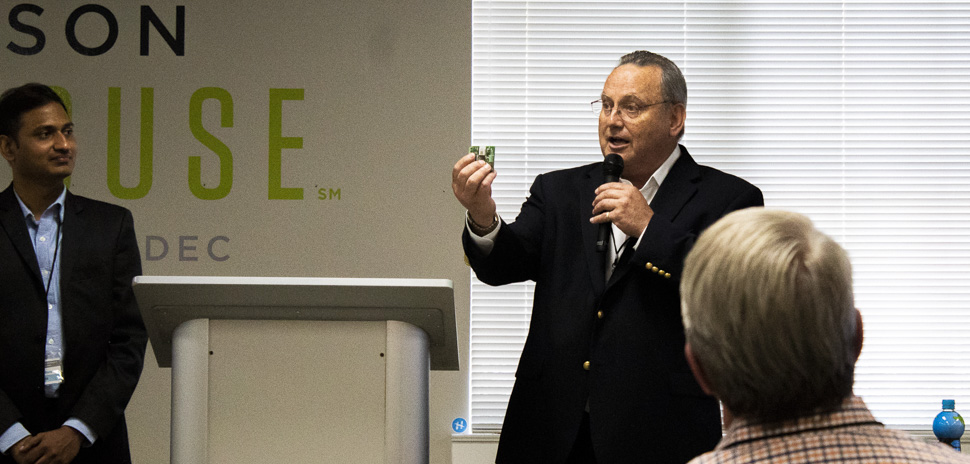
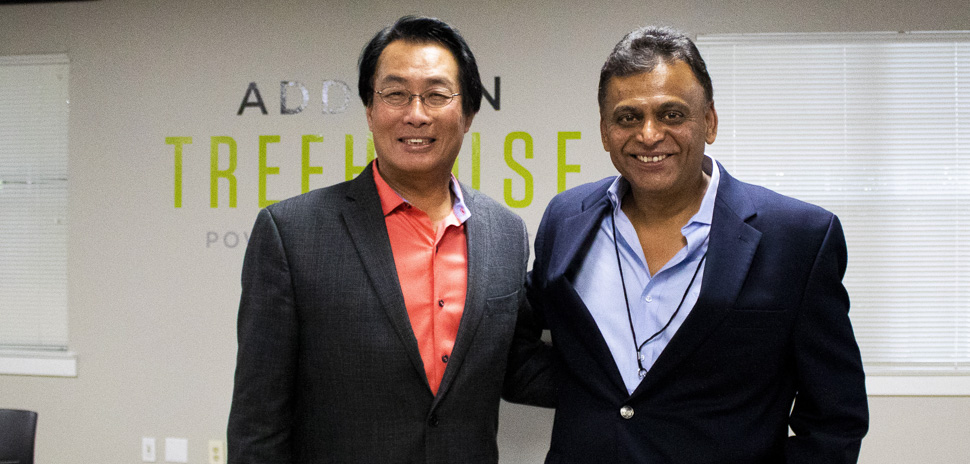
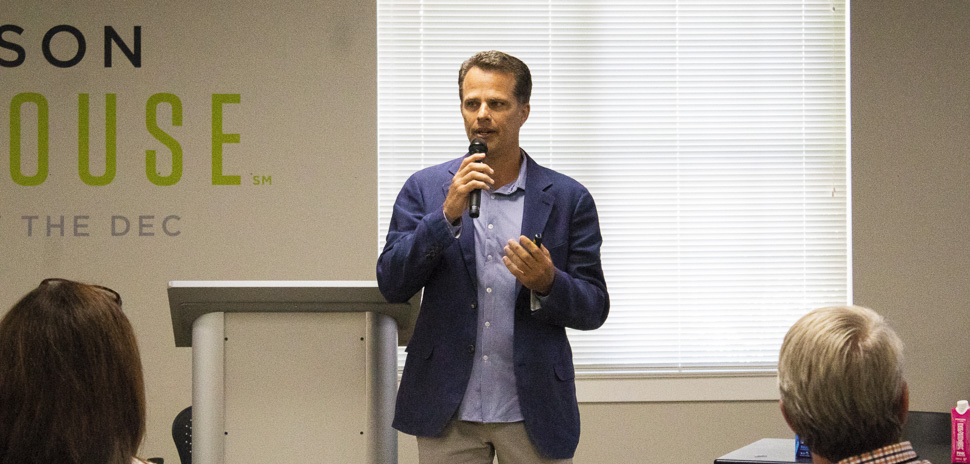
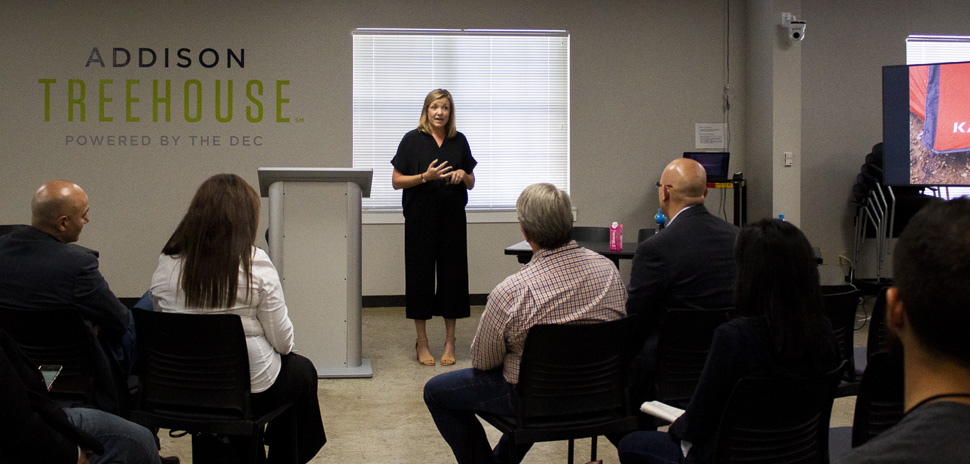
![]()










